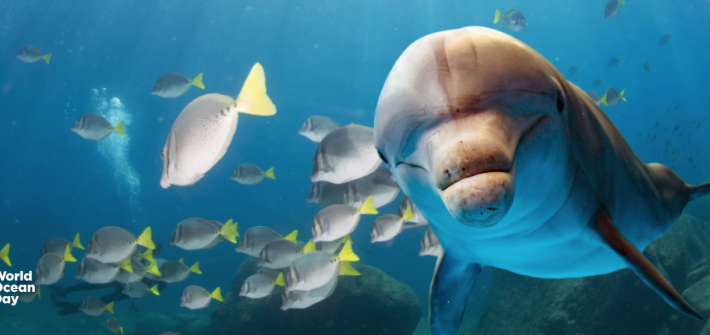We all know how our environment we live in impacts our health and the same goes for our marine life. Have you ever stopped to wonder just how their environment could be affecting our health as consumers? Here are some reasons why eating seafood might not be as good for you as we were once lead to believe…
1. MERCURY POISONING
Human activities like gold mining and coal burning can lead to mercury pollution in our waterways and then mercury accumulates in the fish that lives in them. Fish have trouble expelling mercury from their bodies and it can build up in their tissue. Mercury poisoning in humans has been known to cause nervous system disorders and reproductive issues as well as developmental problems in children and unborn babies.
2. NOT THE ALPHA FOR OMEGA-3s
Much like the milk/calcium myth (which has been debunked), the seafood industry has been trying to persuade people to eat more omega-3s. While it is an essential nutrient, we can get omega-3s from plant sources and avoid other health risks. The Environmental Working Group found that people who ate the “recommended” amounts of many commonly consumed types of fish were ingesting dangerous amounts of mercury while getting relatively small amounts of omega-3s.
3. FISH FLESH CAN CAUSE YOUR ARTERIES TO CLOG
If you’re eating fish for omega-3s because you want a healthy heart, you might be doing your body more harm than good. Between 15% and 30% of the fat in fish is saturated, which makes our livers produce more artery-clogging cholesterol.
4. SO TRASHY
If you wouldn’t drink straight from your local river, lake, or ocean, is it really a good idea to eat the animals who live in them? Our waterways are polluted with raw sewage, runoff from animal agriculture, harmful chemicals, microplastics, and trash.
5. PCBs
Polychlorinated biphenyls (PCBs) are highly toxic industrial chemicals that have been banned in the U.S. since 1977. They’re slow to break down, and they accumulate in the sediment at the bottom of lakes, rivers, and coastal areas and in the tissues of fish who live and eat there. The Environmental Protection Agency says that contaminated fish are a persistent source of PCBs in the human diet. These chemicals have been shown to damage the circulatory, nervous, immune, endocrine, and digestive systems.
6. HOOKED ON DRUGS
Because we’ve depleted the oceans’ fish populations, many fish, such as salmon, are farmed. Thousands of fish are crammed into tiny pens, so water stays dirty, and diseases and parasites spread. To try to kill the parasites, farmers add antibiotics and pesticides to the water, which the fish ingest and absorb—and pass on to those who eat them.
7. PARASITIC WORMS AND FLESH-EATING BACTERIA
Biologists in Denmark found that more than 90% of certain types of wild fish were infected with nematode larvae (aka “roundworms”) and researchers in Alaska found that all the fresh-caught salmon they examined had nematode infestations.
WHAT IF YOU ENJOY THE TASTE OF SEAFOOD?
There is plenty of innovative companies offering plant based versions of seafood that can be found in most supermarkets and health food stores.
WHY WE ARE SUPPORTING WORLD OCEAN WEEK…
The ocean covers over 70% of the planet and produces at least 50% of the planet’s oxygen. It is our life source! With 90% of big fish populations depleted, and 50% of coral reefs destroyed, we are taking more from the ocean than can be replenished. We must build a connection to the ocean and learn from our past mistakes.
Now is the time for big change. Join us and people around the world by signing in support of the global movement to protect 30% of the planet’s lands, waters, and ocean by 2030. Together we can #Protect30x30: http://bit.ly/30x30WOD

